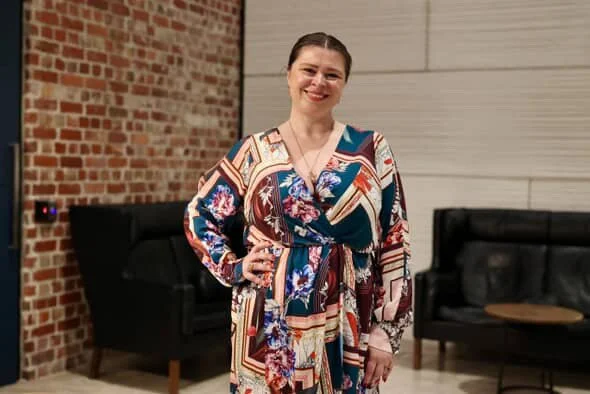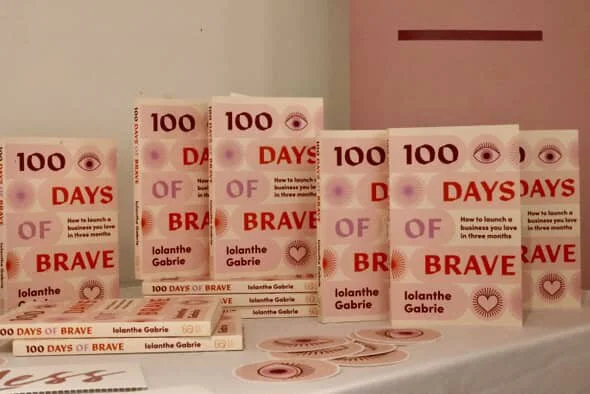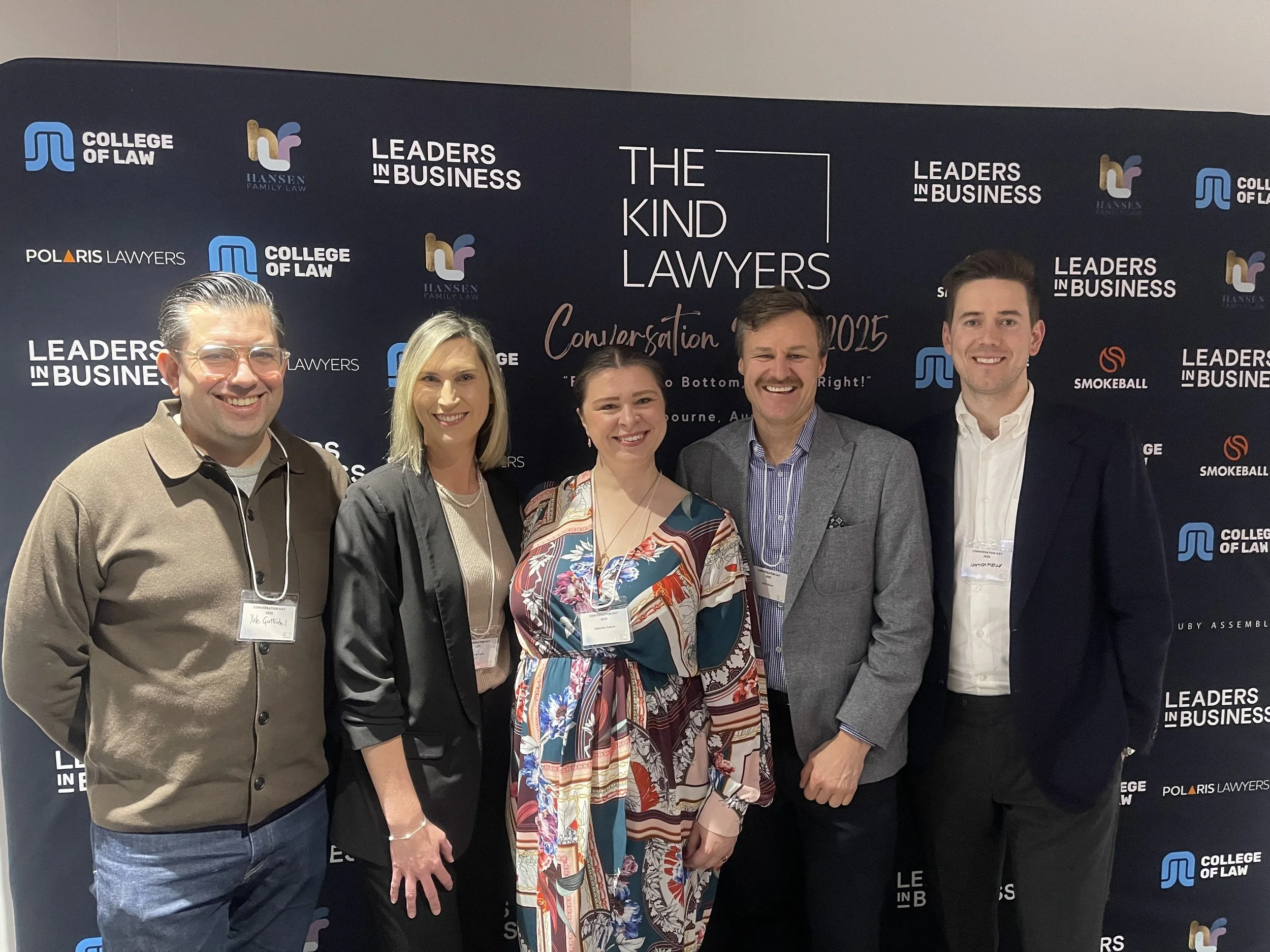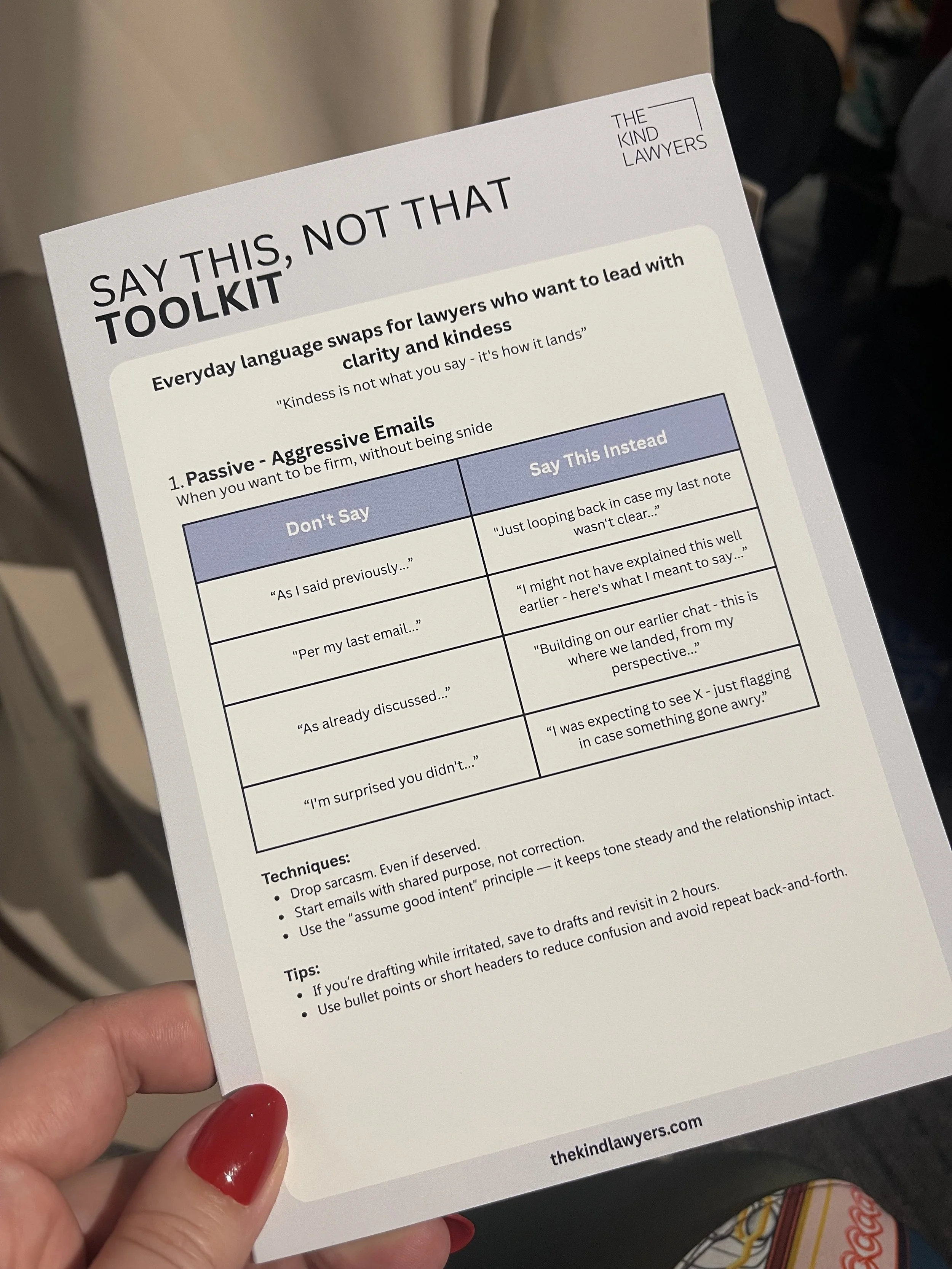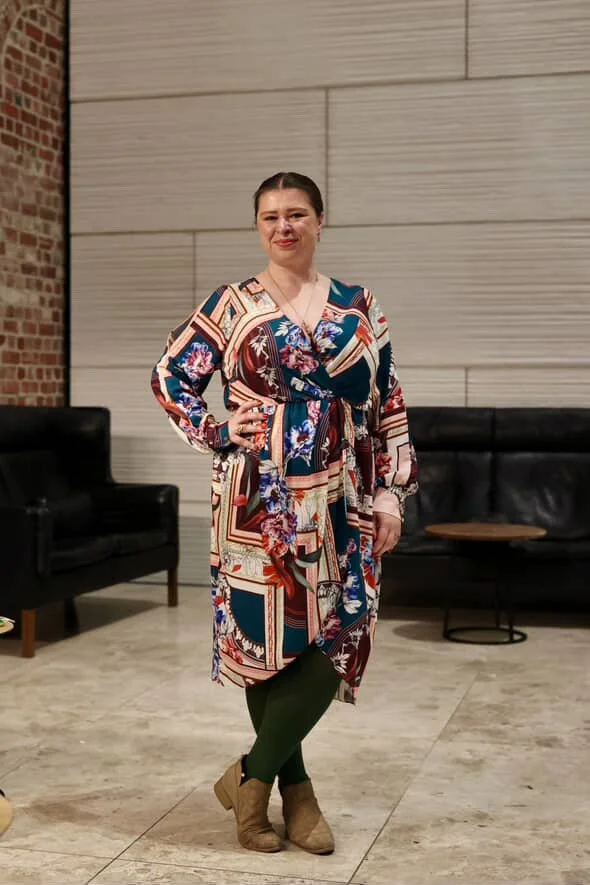Image: Rebecca Hansen
On Friday 22nd August, I arrived at Workclub Olderfleet and was welcomed into a room full of friendly faces in anticipation of that most hopeful annual event: The Kind Lawyers Conversation Day.
Ruby Assembly was proud to be a Friendship Partner of the event – because really, what cause better to support than kindness as a radical professional strategy? This gathering was beautifully brough together by the indefatigable Perpetua Kish, alongside Ben Deverson, Joe Buckley, Jono Naef and Brintyn Smith. Their collective vision? A reimagining of the culture of law as collaborative, humane, and rich with kindness.
Asking Better Questions
We began with a provocation from Dr Phil Stahl:
“If we don’t ask questions, how can we help others?”
In a profession obsessed with certainty and control, asking better and more respectful questions might be the most transformative thing a lawyer can do. It was clear this day was never going to be business-as-usual CPD fodder.
Redefining Conflict
Perpetua Kish herself (read more about her here) spoke candidly:
“I’ve felt held captive by the law. But now I feel free; I’ve found alignment in companionship. Others make me feel more optimistic about the law.”
And:
“Good conflict allows us to become open to learning. We need to reframe our perception of conflict.”
This isn’t naïve kumbaya—it’s a reframing. The idea that sustainable careers in law (as Joe Buckley reminded us) will only thrive if lawyers are nourished as whole humans, not burnt-out gladiators.
Foundations of Kind Lawyering
The pillars are clear:
· Accountability
· Connection
· Alignment (between professional practice and personal values)
· Community
Four deceptively simple anchors which, if taken seriously, could reshape an industry haemorrhaging talent.
The Human Face of Kindness
Barrister Brintyn Smith illustrated why kindness isn’t optional:
· Clients arrive in their most difficult moments. They are seeking dignity, not just legal drafting.
· Kindness is not silence or weakness. It’s showing up with integrity even if the room brims with hostility.
· Young lawyers are always watching. Role models matter.
Authenticity and Empathy in Practice
At the College of Law, Ann-Maree David grew disillusioned with the “command-and-control” style of lawyering—robes, titles, and elitist rituals masquerading as professional gravitas. She found power instead in humanity:
“I learned there was no shame in being a lawyer AND being a human.”
Empathy, she argued, is not just an add-on. It transforms service into care.
L-R: Yule Guttenbeil, Belinda Furse, Iolanthe Gabrie, Nick Mann and Hamish Kelly
Lawyer, Know Thyself
Emily Knowles of LIV shared some sobering psych stats. The “lawyer personality” often trends high in skepticism, urgency, autonomy, and abstract reasoning. Less so in the empathy and resilience department. Ouch.
Her elegant reminder: Which self do you cultivate—the “CV self” or the “eulogy self”? Do you live for accolades, or for impact? A beautiful memento mori worth keeping in your back pocket.
She also pulled apart our defensive triggers: status, certainty, autonomy, relatedness, fairness. These raw nerves so often dictate how lawyers react rather than think.
Stories of Courage
Kindness, as emerged again and again, is both ethical duty and personal resistance. Consider:
· Sitarah Mohamadi, a Hazara-Australian lawyer, spoke bravely about being told to “be more white” in a workplace meeting. A stomach-turning reality check: kindness is diverse inclusion, not assimilation.
· Nick Mann, candid about once having been the “unkind lawyer,” found that corrosive anger unsustainable—for himself and those around him. Now, his leadership is based on curiosity and balanced compassion.
· Audrey Mims, podcaster and lawyer, framed law not as abstract statute but as a vocation grown from something personally in many cases: through family, grief, and love.
Radical Rethinks on Costing and Fairness
Panelists like Jennie Pakula and Marianne Marchesi challenged one of the most entrenched toxins in law: the billable hour. Marchesi declared hourly fees “unethical” (yes! say it louder for the people at the back), calling instead for fixed-fee models that reduce mistrust between lawyer and client. This is kindness through clarity.
Kindness as Professional Strategy
The final note was galvanising—and practical. Family lawyer Amanda Little reminded us:
“Aggression is not required to achieve a positive result.”
Every letter a lawyer writes can either inflame conflict (and scar children in the process) or soothe it. That alone should reframe what reputation you wish to cultivate.
We also heard from Artemis Evangelidis, who once had feedback that her kindness (“you smile too much”) wasn’t culturally appropriate. Apparently, she was treating clients too well! In fact, this kindness is Artemis’ secret sauce.
And to close, Justice Chrissa Loukas-Karlsson offered this gem:
“Kindness is a superpower. It is strength, and bullying is weakness.”
Image: Rebecca Hansen.
My Takeaway
Walking out of Conversation Day, I thought about how astonishing it is that we need to defend kindness. But law has a way of armouring its participants.
The Kind Lawyer Movement is peeling back that armour, showing us that kindness is not a luxury or a nice-to-have. It is a practice, a strategy, and maybe even a legal revolution.


